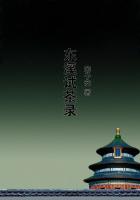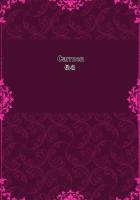Accordingly, king John was no sooner seated on his throne than Ibegan to oppose his measures, whether right or wrong. It is true that monarch had faults enow. He was so abandoned to lust and luxury, that he addicted himself to the most extravagant excesses in both, while he indolently suffered the king of France to rob him of almost all his foreign dominions: my opposition therefore was justifiable enough, and if my motive from within had been as good as the occasion from without I should have had little to excuse; but, in truth, I sought nothing but my own preferment, by ****** myself formidable to the king, and then selling to him the interest of that party by whose means I had become so. Indeed, had the public good been my care, however zealously I might have opposed the beginning of his reign, I should not have scrupled to lend him my utmost assistance in this struggle between him and pope Innocent the third, in which he was so manifestly in the right; nor have suffered the insolence of that pope, and the power of the king of France, to have compelled him in the issue, basely to resign his crown into the hands of the former, and receive it again as a vassal; by means of which acknowledgment the pope afterwards claimed this kingdom as a tributary fief to be held of the papal chair; a claim which occasioned great uneasiness to many subsequent princes, and brought numberless calamities on the nation.
"As the king had, among other concessions, stipulated to pay an immediate sum of money to Pandulph, which he had great difficulty to raise, it was absolutely necessary for him to apply to the city, where my interest and popularity were so high that he had no hopes without my assistance. As I knew this, I took care to sell myself and country as high as possible. The terms Idemanded, therefore, were a place, a pension, and a knighthood.
All those were immediately consented to. I was forthwith knighted, and promised the other two.
"I now mounted the hustings, and, without any regard to decency or modesty, made as emphatical a speech in favor of the king as before I had done against him. In this speech I justified all those measures which I had before condemned, and pleaded as earnestly with my fellow-citizens to open their purses, as I had formerly done to prevail with them to keep them shut. But, alas! my rhetoric had not the effect I proposed. The consequence of my arguments was only contempt to myself. The people at first stared on one another, and afterwards began unanimously to express their dislike. An impudent fellow among them, reflecting on my trade, cried out, 'Stinking fish;' which was immediately reiterated through the whole crowd. I was then forced to slink away home; but I was not able to accomplish my retreat without being attended by the mob, who huzza'd me along the street with the repeated cries of 'Stinking fish.'
"I now proceeded to court, to inform his majesty of my faithful service, and how much I had suffered in his cause. I found by my first reception he had already heard of my success. Instead of thanking me for my speech, he said the city should repent of their obstinacy, for that he would show them who he was: and so saying, he immediately turned that part to me to which the toe of man hath so wonderful an affection, that it is very difficult, whenever it presents itself conveniently, to keep our toes from the most violent and ardent salutation of it.
"I was a little nettled at this behavior, and with some earnestness claimed the king's fulfilling his promise; but he retired without answering me. I then applied to some of the courtiers, who had lately professed great friendship to me, had eat at my house, and invited me to theirs: but not one would return me any answer, all running away from me as if I had been seized with some contagious distemper. I now found by experience, that as none can be so civil, so none can be ruder than a courtier.
"A few moments after the king's retiring I was left alone in the room to consider what I should do or whither I should turn myself. My reception in the city promised itself to be equal at least with what I found at court. However, there was my home, and thither it was necessary I should retreat for the present.
"But, indeed, bad as I apprehended my treatment in the city would be, it exceeded my expectation. I rode home on an ambling pad through crowds who expressed every kind of disregard and contempt; pelting me not only with the most abusive language, but with dirt. However, with much difficulty I arrived at last at my own house, with my bones whole, but covered over with filth.
"When I was got within my doors, and had shut them against the mob, who had pretty well vented their spleen, and seemed now contented to retire, my wife, whom I found crying over her children, and from whom I had hoped some comfort in my afflictions, fell upon me in the most outrageous manner. She asked me why I would venture on such a step, without consulting her; she said her advice might have been civilly asked, if I was resolved not to have been guided by it. That, whatever opinion Imight have conceived of her understanding, the rest of the world thought better of it. That I had never failed when I had asked her counsel, nor ever succeeded without it;--with much more of the same kind, too tedious to mention; concluding that it was a monstrous behavior to desert my party and come over to the court.
An abuse which I took worse than all the rest, as she had been constantly for several years assiduous in railing at the opposition, in siding with the court-party, and begging me to come over to it; and especially after my mentioning the offer of knighthood to her, since which time she had continually interrupted my repose with dinning in my ears the folly of refusing honors and of adhering to a party and to principles by which I was certain of procuring no advantage to myself and my family.
"I had now entirely lost my trade, so that I had not the least temptation to stay longer in a city where I was certain of receiving daily affronts and rebukes. I therefore made up my affairs with the utmost expedition, and, scraping together all Icould, retired into the country, where I spent the remainder of my days in universal contempt, being shunned by everybody, perpetually abused by my wife, and not much respected by my children.
"Minos told me, though I had been a very vile fellow, he thought my sufferings made some atonement, and so bid me take the other trial."















